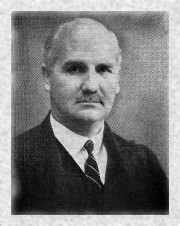Background
The war against the U-boat was a war steered by RAF Coastal Command. During the first years of the war this fight was in a dire state of affairs; merchant sinkings were at an all-time high and U-boat sinkings were at an all-time low. In 1941 Patrick Blackett, a young physicist at the forefront of Operational Research, was asked to form an Operational Research Section within Coastal Command (CC-ORS). Blackett created a team composed of an eclectic mixture of scientists including three physicists, three communications experts, four mathematicians, and several physiologists and biologists. The average membership of the CC-ORS was sixteen members, and the highest recorded was twenty five. Throughout the wartime period, CC-ORS included two Nobel Prize winners, five Fellows of the Royal Society and a Fellow of the National Academy of Sciences of Australia.
According to Blackett, the ‘fundamental scientific background to the whole campaign’ was the fact that the U-boats had to surface frequently to re-charge their batteries and carry out other necessary procedures. This meant they were then open to aerial detection and attack; a huge advantage to Coastal Command.
The operations conducted by CC-ORS were very complex, mainly due to the number of factors needing to be considered in each operation. These included navigation, search, identification, bombing accuracy, verification of results and the return to base. The main focuses of CC was the anti U-boat war, convoy protection and attacks on enemy shipping. These all lasted throughout the war, at varying levels of intensity.

